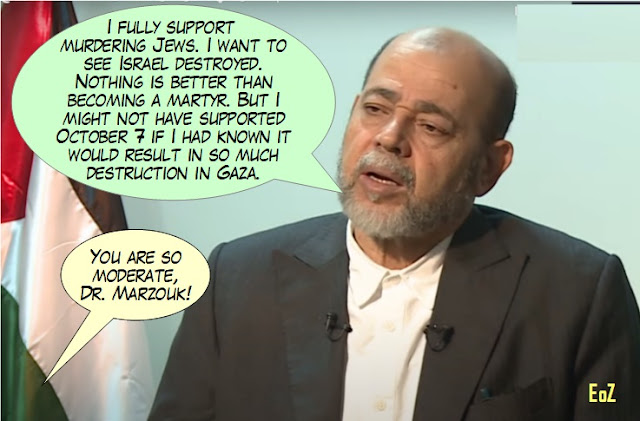Begin’s unpublished writings to be released on 33rd anniversary of his death
A collection of previously unseen documents, letters and articles written by former Prime Minister Menachem Begin will be made public next week, coinciding with the 33rd anniversary of his death.Growing threat of US isolationism is a danger to the US-Israel alliance
Among the handwritten papers is a document outlining Begin’s views on human rights, the need for a constitution and the tension between the judiciary and the legislature.
In 1952, Begin wrote a 65-page paper titled A Personal View, A National View and Basic Principles. Due to austerity measures in the young state of Israel, he drafted it on discarded rolls of paper from a printing press.
“There is no justice without courts,” Begin wrote. “Justices are but flesh and blood and may make mistakes, be bribed or afraid, but the determinative role of the court in our society is not the human weaknesses of any particular judge but the ‘psychological position’ given to that institution and those who sit in judgment.” He argued that both the judiciary and authorities must uphold the courts’ complete independence.
Herzl Makov, CEO of the Menachem Begin Heritage Center, described the documents as a reflection of Begin’s political philosophy and humility. “It is a sharp political analysis that distills Begin’s liberal-national worldview,” he said.
In the writings, Begin also addressed Israel’s territorial aspirations and the necessity of national might. He warned that Israel’s security depended on its power. “Anyone with eyes in his head knows that when we are strong, we will not be attacked by the Arabs, even without signed agreements. And if we are weak, our Arab enemies will rise to destroy us, even if such agreements are forged in diplomacy.”
Begin criticized Israel’s early leaders for conceding historical lands, lamenting that they agreed to establish the state without key biblical sites within its borders. “National leaders were found willing to sign, in the name of the people of Israel, that Jerusalem, Hebron, Bethlehem, Jericho, Nablus and all the good land east of the Jordan would not be ours. Is there a national-historic crime equal to this?”
Throughout history, political movements, even those not initially antisemitic, have often seen their most radical factions steer them toward antisemitism.John Aziz: Why Zionism Is Not Colonialism
In recent years, segments of the American left have embraced militant Diversity, Equity, and Inclusion (DEI) initiatives, Critical Race Theory (CRT), Marxist ideologies, and policies that exacerbate societal divisions.
This shift has, at times, fostered antisemitic sentiments as observed in rhetoric from certain college campuses, organizations, such as the Democratic Socialists of America (DSA), Jewish Voice for Peace, national unions, civil rights groups, and members of the “Squad.”
For instance, a recent report from StopAntisemitism revealed that 72% of Jewish college students in the United States feel unwelcome, with over half having faced antisemitism.
The Republican Party has successfully positioned itself against many of these divisive issues, recognizing their danger to the American way of life and the direct opposition to liberal US values. The new administration has already made strides in addressing these social challenges and affirmed itself as a strong ally of the Jewish people and the State of Israel.
However, the GOP has a blind spot for a Trojan horse gaining momentum within its ranks: a faction of “America First” isolationists who promote policies that, if unchecked, could threaten both America’s global standing and its allies, particularly Israel.
Defining themselves sometimes as “restrainers,” these figures advocate a philosophy of strengthening domestic affairs by rallying against most types of foreign aid and limiting military engagement abroad. While a measure of restraint in foreign policy is healthy, taken to an extreme, it risks weakening America’s global leadership and its commitment to strategic allies. The Jewish community must recognize this emerging threat and its potential to undermine the US-Israel alliance.
The United States cannot afford to completely retreat from the world stage without severe consequences for its own and global security.
History has shown that when America stands back, adversaries quickly fill the vacuum – whether in the Middle East, Europe, Asia, or Latin America. A disengaged America emboldens hostile regimes, undermines global stability, and endangers our interests and allies.
Turning away from Israel, as advocated by the America First isolationists, would send a dangerous message to other US allies: America is no longer a reliable partner.
The isolationist sentiment echoes past missteps, such as the US’s reluctance to confront the growing threats of Nazi Germany in the 1930s. If the US pulls back now, nations that rely on American support may be forced to seek alliances elsewhere, including with adversaries like China, Russia, and Iran.
The claim that Zionism is a form of colonialism is at the heart of a lot of anti-Zionist narratives. The story goes that white, Western Jews decided to colonise Palestine, and displace the native Palestinian Arab population.Reform rabbi: ‘Hamas is the Palestinians,’ two-state solution a delusion
John Aziz's Blog is a reader-supported publication. To receive new posts and support my work, consider becoming a free or paid subscriber.
One piece of historical evidence that often gets thrown around in these conversations and seems to have gone mega viral a few times recently is this headline from the New York Times, proclaiming that Zionists intended to colonise Palestine:
The implications of this accusation of colonisation is that colonisation is a horrible thing that must end as the arc of history bends further and further towards justice, to paraphrase Martin Luther King, Jr. In other words, the colonisers must give the land back to the previous owners, and return from whence they came.
But ownership of land, especially in a national sense, is a complex and fraught topic. Yes, it’s true that Palestinian Arabs were living in the land as a majority during the British Mandate between 1917-1947, and the Ottoman Empire during 1517-1917. But there were multiple earlier Jewish polities in the Holy Land across history, with the most recent independent Jewish entity ending with the defeat of the Bar Kokhba revolt in 136 AD, after the destruction of the Second Temple in 70 AD following the first Jewish-Roman war.
The result of the Roman colonisation of the land was the enslavement and expulsion of many of the pre-existing indigenous Jewish population, who became scattered across the former Roman empire in Europe and the middle east. Similarly, the ancestors of the Palestinians are not only from later Arab conquerors, and the Romans and Byzantines themselves, but they are also descended in large part from parts of the Jewish population that stayed on the land in spite of Roman rule, and later converted to Christianity or Islam.
This is why Jewish and Palestinian populations are genetically quite closely linked:
The reality of Zionism is that it was the descendants of Jewish people who had previously been displaced from Palestine (or the Land of Israel, or whatever you want to call it) trying to return to the home land of their ancestors.
This is why unlike with classical colonialism, for example the French colonisation of Algeria—which is often cited as an inspiration by Palestinian anti-Zionists—there is no mother country or colonial metropole in the case of Zionism. Colonialism is defined in the Oxford English Dictionary as the act of one country acquiring control over another country, occupying it with settlers, and exploiting it economically.
Now some may contest this definition. But by that definition, the New York Times description of Zionism as an act of colonisation was simply not accurate.
The question to ask anyone who claims Zionism is colonialism is what is the mother country?
The murder of Shiri Bibas and her two children at the hands of Palestinian terrorists has ended the possibility of a two-state solution, a prominent Reform rabbi declared on Friday.
Rabbi Ammiel Hirsch, senior rabbi at New York City’s Stephen Wise Free Synagogue, told congregants in an explosive Shabbat sermon that he had “snapped” over the killings.
“This was the week that finally ended the hope–at least in my lifetime–for a Palestinian state and a Jewish state existing side-by-side,” Hirsch said. “The Palestinians themselves strangled this fragile hope in its crib.”
“Until such time as the Palestinians themselves say they want peaceful coexistence–two states living side-by-side–we must cease deluding ourselves that a two-state solution is available now,” he added.
Gazan terrorists abducted Shiri Bibas, 32, and her two sons Ariel, 4, and Kfir, 9-months-old, from Kibbutz Nir Oz in the Hamas-led terrorist attacks in southern Israel on Oct. 7, 2023. Based on forensic evidence, their captors murdered the two children “with their bare hands” within weeks of the attacks, according to the Israel Defense Forces.
The funeral for the three victims was held on Wednesday after their bodies were returned to Israel as part of Phase 1 of the ceasefire-for-hostages deal between Hamas and Israel.
According to Hirsch, the murders and Hamas’s staging of parade-like ceremonies to crowds of cheering Gazans during the release of emaciated Israeli hostages is an indictment of Palestinian society, which suffers from a “moral miasma and social collapse” and whose national movement fuels “an endless cycle of violent depravity.”


















 Buy
Buy 

































